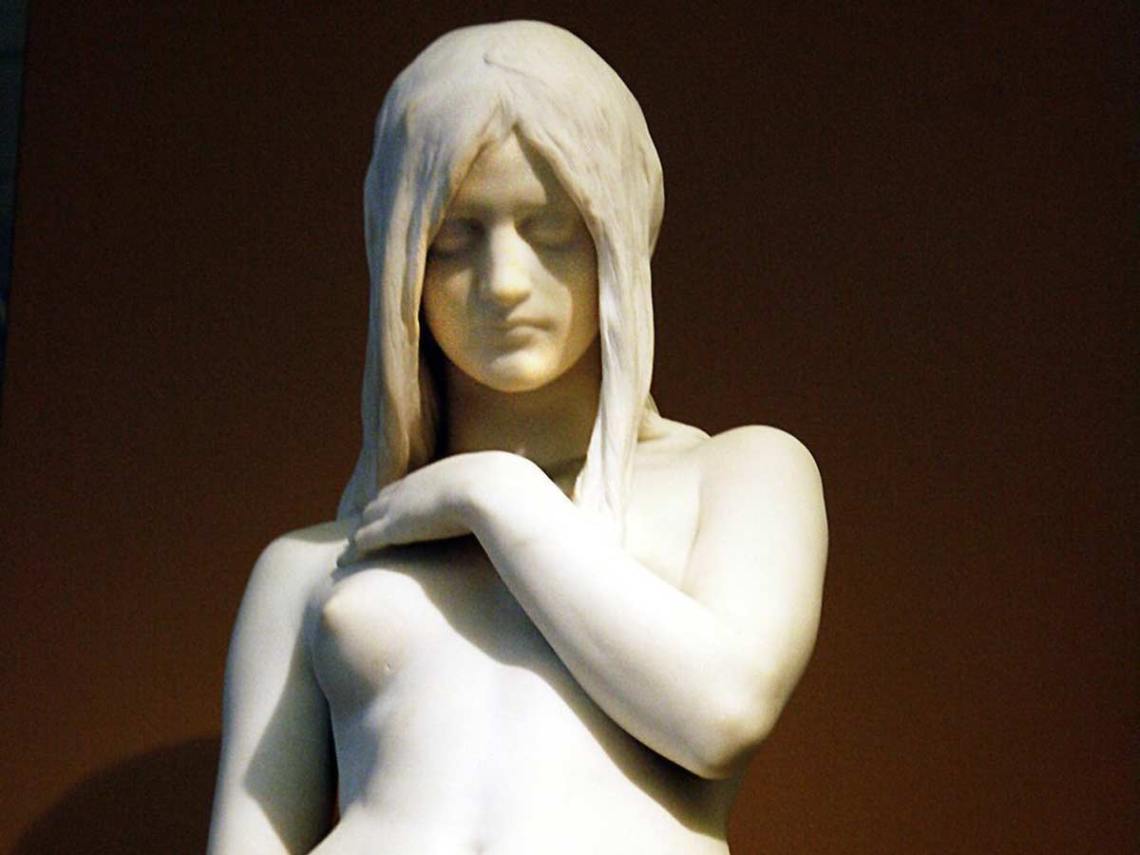
For evidence that most major world religions were invented by men for men, look no further than how they approach menstruation.
Rather than looking at menstruation as a natural part of God’s creation—hey, that rhymed!—most religions view a woman’s period as a problem. With varying degrees of severity, they target menstruation as a sign of impurity and uncleanliness. During a woman’s monthly cycle, she must be separated from the religious community until she is once again “purified.”
Hey, don’t get angry at me—I don’t make the rules, I only report them.
Judaism
Of all religions, Judaism is perhaps the harshest toward Aunt Flo.
For roughly two weeks out of every month, a woman is considered niddah—i.e., impure due to her natural menstrual cycle. The niddah phase begins at the first drop of menstrual blood and continues for a full week after menstruation is over. At the end of that week, she undergoes an elaborate ritual bath known as the mikveh. Upon completing the mikveh, she is to approach the temple with a sacrifice in hand—usually a pair of doves—hoping that the rabbi accepts her as clean once more.
This is all laid out in the fifteenth chapter of Leviticus:
Whenever a woman has her menstrual period, she will be ceremonially unclean for seven days. Anyone who touches her during that time will be unclean until evening. Anything on which the woman lies or sits during the time of her period will be unclean…If a man has sexual intercourse with her and her blood touches him, her menstrual impurity will be transmitted to him. He will remain unclean for seven days, and any bed on which he lies will be unclean…When the woman’s bleeding stops, she must count off seven days. Then she will be ceremonially clean. On the eighth day she must bring two turtledoves or two young pigeons and present them to the priest at the entrance of the Tabernacle.
During this period (pun intended) of uncleanliness, everything about the woman, including her clipped toenails, is considered unclean. Any male who touches the impure woman is also rendered unclean. According to the Babylonian Talmud, the death penalty is reserved for any man who has sexual intercourse “with a menstruous woman.”
Christianity
Along with Buddhism, Christianity has perhaps the least harsh attitude toward menstruation of all the major world religions. Some sects share the Old Testament attitude that originated in Leviticus—i.e., that a simple monthly period is “impure”—but they rarely go to the extreme of isolating a woman from the general community as if she were a leper. The most anti-menses strains of Christianity are found among the Eastern Orthodox Church, where women are forbidden from receiving communion while on their period. More extreme factions of the Russian Orthodox Church even force women to live in “menstrual huts” while on their period.
Islam
According to Quran 2:222:
They ask you about menstruation. Say, ‘It is an impurity, so keep away from women during it and do not approach them until they are cleansed; when they are cleansed you may approach them as God has ordained….’
This is basically a much less severe version of the Judaic niddah—during her period a woman is considered unclean, but the only restrictions are that she not have sex, touch a Quran, or enter a mosque for a full week. As in Judaism, she must undergo a ritual bath before being deemed “clean” again.
Buddhism
Buddhism itself sees nothing especially impure about menstruation—well, nothing more impure than all other bodily functions, which are generally deemed to be evidence of filthy rotten leaking impurities on the physical plane.
The religion teaches that a woman loses a bit of her life force—i.e., “Qi”—during her period and also that ghosts eat blood, which renders women more vulnerable to spiritual impurities, seeing as how she’d be surrounded by blood-eating ghosts.
But most of Buddhism’s prohibitions against menstruation—such as forbidding women from entering temples during their period—are thought to be vestigial customs inherited from Hinduism.
Hinduism
According to Hindu legend, menstruation began after Lord Indra severed the head of Vishwaroopacharya, ostensibly out of anger because he found it impossible to pronounce his name.
As in the other major religions, menstruation is deemed a sign of not only physical but also spiritual impurity. During her cycle, a woman is forbidden from entering not only Hindu temples but also her own kitchen. She must not sleep in the daytime, bathe, have sex, touch other living humans, or speak loudly. In many cases, she is banished to live in a “menstrual hut” outside her home. But unlike other religions, she is deemed pure once the moment menstruation ceases—there is no purification process or ritual bathing necessary.
Zoroastrianism
OK, I’ve already covered the five “major” world religions and am getting into more obscure metaphysical turf here, but Zoroastrianism is significant because this Persian belief system is thought to be the forefather of Western monotheism and such dualistic ideas as good/evil, God/Satan, and heaven/hell.
As with the other religions, menstruating women are held to be impure, but so are Zoroastrian priests who have bleeding sores. Blood, not mere menstruation, is seen as the source of impurity.
Shintoism
In Japan’s national religion, menstruating women are not only seen as impure during their cycle—they are permanently impure merely due to the fact that they menstruate. But while on their period, they forbidden from entering shrines and temples. They are also forbidden from climbing certain “sacred” mountains due to their “impurity.”
Rastafarianism
This would not be considered a “major” religion to anyone who isn’t a Bob Marley fanatic, yet it mimics other religions’ attitudes toward female bodily fluids. Restrictions on menstruating women are especially stringent when it comes to food preparation, as menstrual blood is said to contain “poisonous powers” that will afflict anyone who eats menses-tainted food. Bloodclot, mon!
Sikhism
No problems for the ladies here at all—according to Sikhism’s founder Guru Nanak, a mother’s blood is necessary for human life and is therefore sacred rather than impure. For this fact alone, Sikhism is the most woman-friendly of all the world’s patriarchal religions. ![]()





